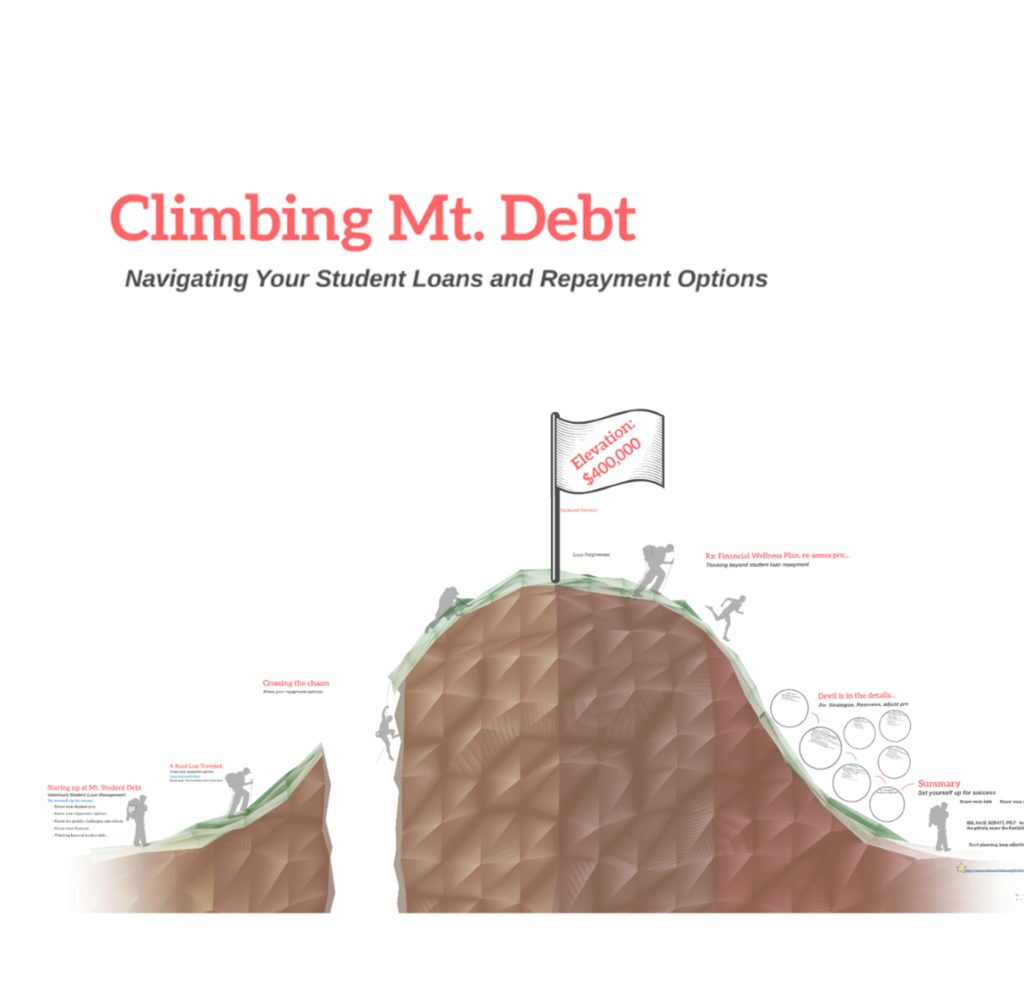SPEAKER SERIES
VIN FOUNDATION SPEAKER SERIES IS HERE TO HELP!
Student Debt

Speaker:
Tony Bartels, DVM, MBA
VIN Foundation Board Member
Tony Bartels graduated in 2012 from the Colorado State University combined MBA/DVM program. He is an employee of the Veterinary Information Network (VIN) and a VIN Foundation Board Member. Tony came to veterinary medicine as a career change by way of engineering and corporate finance. He and his wife, a small-animal internal medicine specialist practicing in Denver, have more than $400,000 in veterinary-school debt that they manage using Federal income-driven repayment plans. By necessity (and now obsession), his professional activities include researching and speaking on veterinary-student debt, providing guidance to colleagues on loan-repayment strategies and contributing to VIN Foundation initiatives. Beyond educational debt, his professional interests include small- and exotic-animal practice. When he’s not staring holes into his colleagues’ student-loan data, Tony enjoys fly fishing, ice hockey, and exploring Mountain West with his wife, Audra, and their rescued Labradoodles, Addi and Maggie.

Audience: Pre-Veterinary
Title: Apply Smarter
According to the American Association of Veterinary Medical Colleges (AAVMC) 2023-2024 Annual Data Report, the least expensive first-year discounted tuition seat (in-state resident seat) for veterinary students starting in Fall 2023 (graduating 2027) was about $18,904 (University of Georgia).
The priciest first-year non-discounted tuition (out-of-state, non-resident seat) was about $74,352 (Ohio State University). You can expect to receive a great veterinary education at any of the AVMA COE accredited veterinary schools.

Audience: Veterinary Students
Title: Borrow Better

Audience: Veterinarians
Title: Climbing Mt. Debt | Repay Wiser
Learning Objectives:
Speaker Context:
- Knowing which repayment plans you can use; and
- Deciding which repayment plan you should use.
CE Credits:
- 1 credit per hour
- Approved for AAVSB and New York State credits
